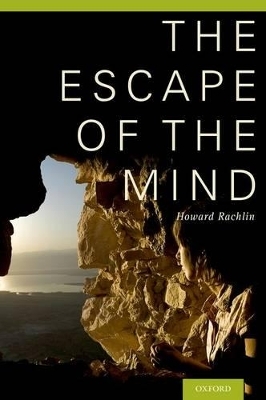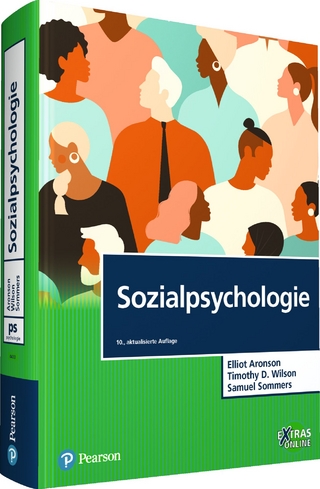
The Escape of the Mind
Oxford University Press Inc (Verlag)
978-0-19-932235-0 (ISBN)
The Escape of the Mind is part of a current movement in psychology and philosophy of mind that calls into question what is perhaps our most basic, most cherished, and universally accepted belief--that our minds are inside of our bodies. Howard Rachlin adopts the counterintuitive position that our minds, conscious and unconscious, lie not where our firmest (yet unsupported) introspections tell us they are, but in how we actually behave over the long run. Perhaps paradoxically, the book argues that our introspections, no matter how positive we are about them, tell us absolutely nothing about our minds. The name of the present version of this approach to the mind is "teleological behaviorism."
The approaches of teleological behaviorism will be useful in the science of individual behavior for developing methods of self-control and in the science of social behavior for developing social cooperation. Without in any way denigrating the many contributions of neuroscience to human welfare, The Escape of the Mind argues that neuroscience, like introspection, is not a royal road to the understanding of the mind. Where then should we look to explain a present act that is clearly caused by the mind? Teleological behaviorism says to look not in the spatial recesses of the nervous system (not to the mechanism underlying the act) but in the temporal recesses of past and future overt behavior (to the pattern of which the act is a part).
But scientific usefulness is not the only reason for adopting teleological behaviorism. The final two chapters on IBM's computer, Watson (how it deviates from humanity and how it would have to be altered to make it human), and on shaping a coherent self, provide a framework for a secular morality based on teleological behaviorism.
Howard Rachlin was trained as an engineer at Cooper Union and as a psychologist at The New School University and Harvard University. He has taught at Harvard University and at Stony Brook University. His current research, supported by the National Institute on Drug Abuse, lies in the development of methods for fostering human self-control and social cooperation.
Acknowledgements ; Preface ; 1. The Invention of the Mind (Plato) ; 2. Mind and Body (Aristotle) ; 3. The Separation of Mind And Body (Saint Augustine) ; 4. The Imprisonment of the Mind (Descartes) ; 5. The Law of Specific Nerve Energies (Muller) ; 6. The Re-Emergence of the Mind: Extended cognition ; 7. The Evolution of Altruism And Self-Control ; 8. Teleological Analysis of Altruism And Self-Control ; 9. Consciousness and Behavior ; 10. How To Make IBM's Computer Watson Human ; Two commentaries: ; From contemporary philosophy of mind (McDowell) ; From radical behaviorism (Schlinger) ; Author's reply ; 11. Shaping the Coherent Self: A Moral Achievement
| Verlagsort | New York |
|---|---|
| Sprache | englisch |
| Maße | 160 x 239 mm |
| Gewicht | 431 g |
| Themenwelt | Geisteswissenschaften ► Philosophie |
| Geisteswissenschaften ► Psychologie ► Sozialpsychologie | |
| ISBN-10 | 0-19-932235-X / 019932235X |
| ISBN-13 | 978-0-19-932235-0 / 9780199322350 |
| Zustand | Neuware |
| Informationen gemäß Produktsicherheitsverordnung (GPSR) | |
| Haben Sie eine Frage zum Produkt? |
aus dem Bereich


